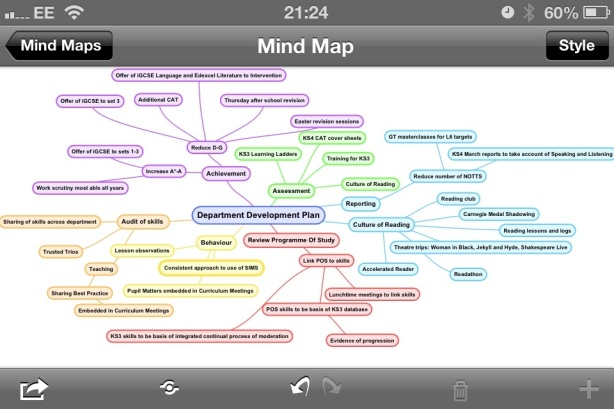Okay, I have asked my Year 11s to write an essay in exam conditions on these poems and this title.
It is so close to the exam, I clearly need to give them feedback but no longer wish to take in their books, depriving them of the opportunity to revise. Therefore, I have started giving them a “Have You Included” sheet.
It is basically an essay plan – what would I have put into the essay had I been asked to do so. But it allows students to self assess, referring to what they wrote, my Have You Included sheet and the marking criteria.
Compare the experiences of education portrayed in In Mrs Tilscher’s Class and Head of English by Carol Anne Duffy.
Have you included:
1. Overview
The experiences are very different:
i. Mrs Tilscher is affectionate and warm;
ii. Head of English is mocking and satirical.
The titles of the poems – the difference between naming the teacher and identifying her only by title – are hugely symbolic
2. Relationship with the teacher
Mrs Tilscher
i. Opportunities given “you could” do and go anywhere
ii. Respect shown to the pupil: “Mrs Tilscher loved you” and sometimes “left a gold star”. Is maternal an appropriate word for Mrs Tilscher?
Head of English
i. Gives instructions – imperative sentences – “Notice…” “Sit up straight”
ii. Curbs and restricts, limits student responses “show your appreciation / by clapping. Not too loud”
iii. Prefers the formulaic and traditional poets: “Season of mists” from Keats’ To Autumn is presumably her preferred form of poetry; Kipling likewise traditional – and also colonial, perhaps an offensive figure to those who have English as a “Second Language”
iv. Short snipped fragments of sentences – gives impression of snappy, rude teacher barking commands
3. Environment
Mrs Tilscher is a sensual poem, students engaged through the senses:
i. “tracing the route”
ii. “coloured shapes”
iii. “scent of a pencil”
iv. Exciting: even books were “enthralling” and the class “glowed like a sweetshop”
v. At points, synaesthetic: “the air tasted of electricity”, “chanted the scenery” almost mystical or magical
Head of English is dramatic monologue, less description
i. Silence is enforced “Whispering’s, as always, out of bounds”
ii. Environment is controlled “Open a window”
4. Education beyond the curriculum
Mrs Tilscher shows a development and growing up process, perhaps rite of passage
i. The tadpoles “changed” which parallels the students’ own maturity
ii. Questions over “how you were born” and students “impatient to be grown”
Is this paralleled in the shortening of the stanza lengths?
iii. Final humid image of the sky “split open into a thunderstorm” heavy with suggestion of the turmoil and potential of adolescence.
Head of English
i. Extremely limited view of poetry and of education
ii. Dismissive: “not all poems, / sadly, rhyme these days” – undermined by Duffy’s own use of rhyme within the poem itself?
iii. Final line deeply offensive, challenge to the poet to “Convince us that there’s something we don’t know”
iv. Reference to education of technique out of context – “Remember / the lesson on assonance” – no opportunity for students to play with or experience language, only derive a lesson
v. “Take notes but don’t write reams. Just an essay / on the poet’s themes”
